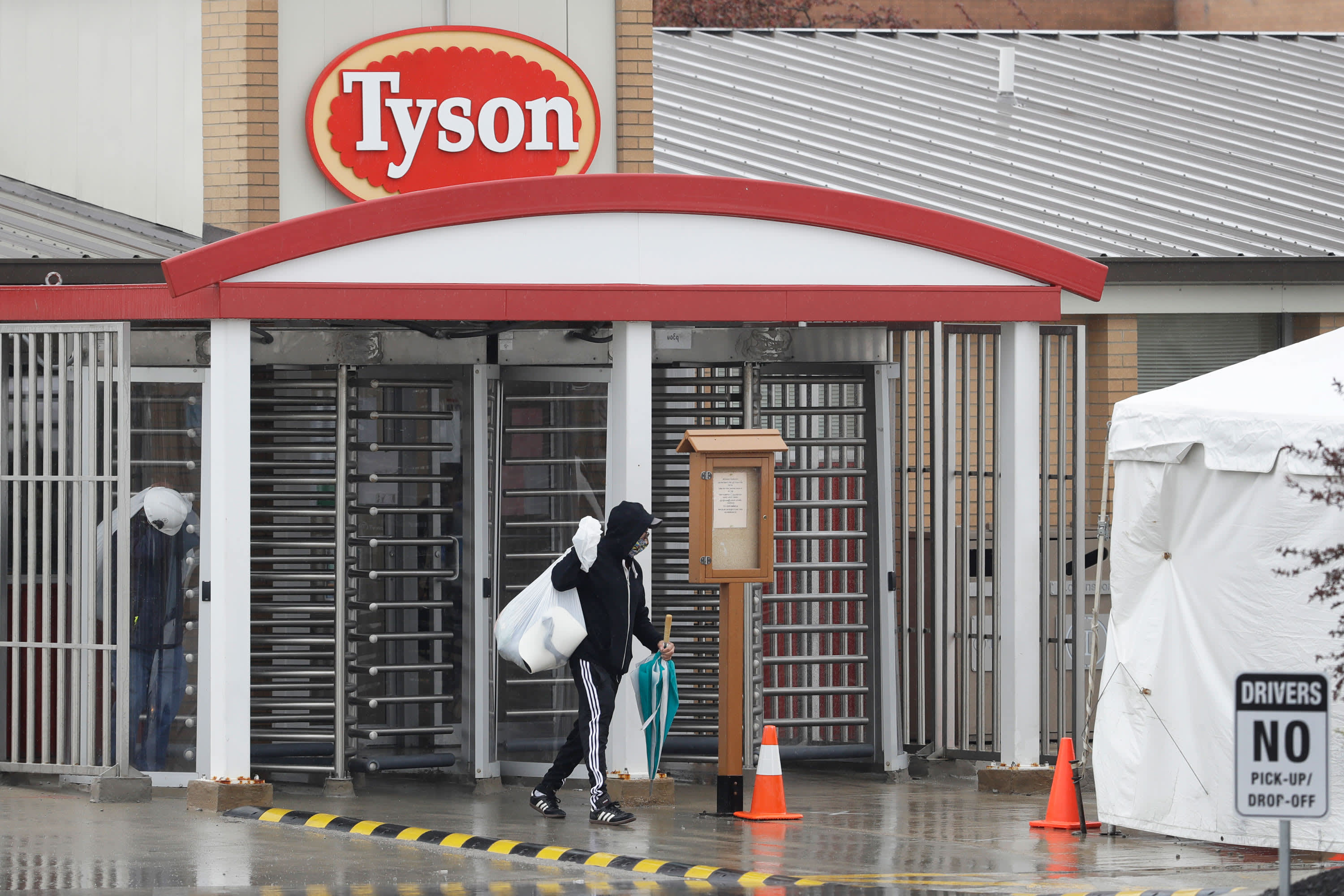A Tyson Fresh Meats plant employee leaves the plant on Thursday, April 23, 2020, in Logansport, Indiana.
Darron Cummings | AP
Tyson Foods on Monday reported that its fiscal second-quarter net income fell 15% from a year earlier, as production disruptions weighed on its results.
The company also said that it has secured a $1.5 billion term loan facility.
Shares of the company, whose brands include Jimmy Dean, fell more than 7% in premarket trading.
Here’s what the company reported for the quarter ended March 28:
- Earnings per share: 77 cents, adjusted
- Revenue: $10.89 billion
Tyson reported fiscal second-quarter net income of $364 million, or $1 per share, down from $426 million, or $1.17 per share a year earlier.
Excluding items, the meat producer earned 77 cents per share.
Net sales rose 4.3% to $10.89 billion. Tyson’s total volume grew 2.6% during the quarter. Beef and pork volumes rose, while Tyson’s chicken and prepared foods segments saw volumes shrink.
Wall Street anticipated earnings per share of $1.04 on revenue of $10.96 billion, based on a survey of analysts by Refinitiv. However, it’s difficult to compare reported earnings to analyst estimates for Tyson’s quarter, as the coronavirus pandemic continues to hit global economies and makes earnings impact difficult to assess.
The pandemic has hit Tyson’s business hard, forcing the company to close plants temporarily as hundreds of its workers test positive for Covid-19. Other meat processors, including JBS and Smithfield, have also temporarily shuttered plants as outbreaks overwhelm their workforce. Last week, President Donald Trump invoked the Defense Production Act, a law intended for wartime usage, to require American meatpacking plants to stay open, even as worker deaths rise.
As Tyson weathers the crisis, it is forecasting higher costs of production and lower levels of productivity.
“Operationally, we have and expect to continue to face slowdowns and temporary idling of production facilities from team member shortages or choices we make to ensure operational safety,” the company said.
The company expects volumes to decrease in the second half of 2020 as it predicts lower demand from food-service outlets to continue. Higher demand in grocery stores, as consumers switch from eating at restaurants to cooking at home, is not enough to offset weaker food-service demand.
Still, Tyson is optimistic that worldwide demand for its meat products will increase over time, despite short-term disruptions stemming from the pandemic.
